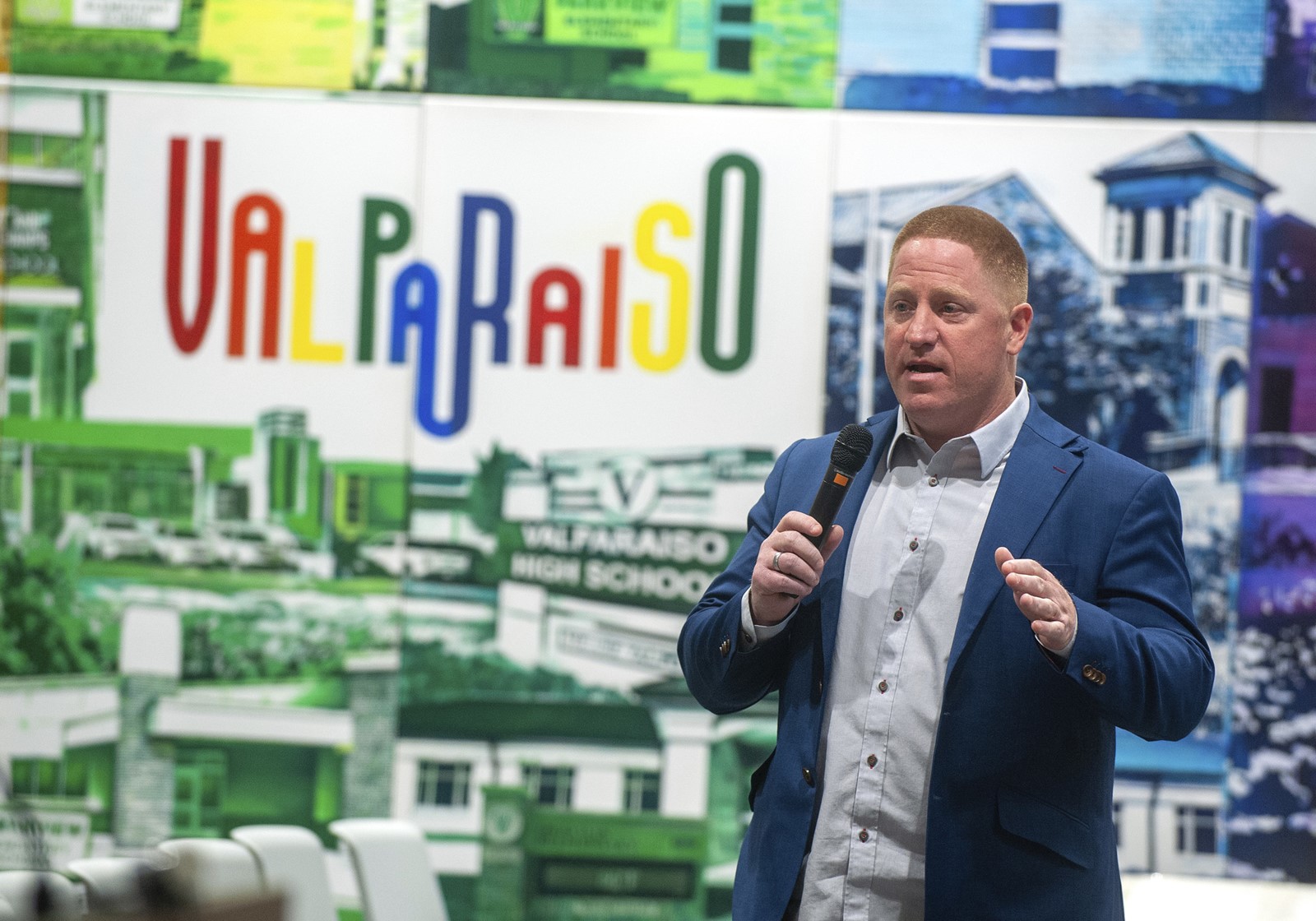
Valparaiso Councilman Peter Anderson has filed a formal complaint with the Indiana Public Access Counselor’s office over access to a city housing study.
“That study basically prescribes 2,000 affordable housing units in the next five years in Valparaiso,” said Anderson, R-5th.
He wants to know why all council members didn’t receive copies at the same time. Anderson didn’t see it until three council members met in private with stakeholders, he said.
When Anderson’s council committee gets information from groups seeking grants from the opioid lawsuit settlement proceeds, that information is immediately shared with all council members so they can review the raw information before receiving the committee’s recommendations, he said.
“While the three-member group may not constitute a quorum under the technical definition of a meeting, the spirit and intent of the Open Door Law appear to have been violated,” he said in his complaint.
“I just felt I was unable to do my job on this particular issue,” and not by his own doing, he said.
Councilman Robert Cotton, D-2nd, who convened a May 29 housing symposium at City Hall to discuss that report and its implications, said Anderson was mistaken in believing the three council members were acting on official business. It wasn’t a secret council committee; council President Ellen Kapitan, D-At-large, didn’t establish the committee and appoint the members, he said.
Rather, it’s an ad-hoc group of people interested in addressing the housing situation in Valparaiso. The likely outcome will be the establishment of a nonprofit to effect change, not a city effort to own and transfer land, Cotton said.
Resident Chris Pupillo put in an Access to Public Records Act request for information about the group led by Cotton. City Attorney Patrick Lyp responded that the request was denied because there weren’t any documents to show; it wasn’t official city business.
The study wasn’t done in secret, Cotton said. Mayor Jon Costas and the Board of Works contracted with Zimmerman Volk & Associates, a nationally recognized firm specializing in housing market analysis, to conduct the study and participate in further consulting services, including public outreach.
Cotton said the results were initially reviewed by an informal steering committee with about 19 members representing housing advocates, nonprofits, the Northwestern Indiana Regional Planning Commission, three council members, Costas and Paradise Homes, an affiliated nonprofit organization.
“It is important to clarify that Valparaiso does not have a formal housing policy, nor is the city in the business of building homes,” Cotton said. “Rather, our objective is to stimulate the market — to spark private and nonprofit activity in segments where housing production has stalled.”
The May 29 symposium, which Anderson attended, examined not only the study’s highlights but also ways to address them.
“By identifying where potential exists and forging partnerships with mission-driven organizations, we believe we can lay the groundwork for a sustainable, community-based housing delivery system,” Cotton said.
The missing segment in the housing industry is new housing “in the income range that has been largely abandoned by the private market, 60% to 120% of area median income,” he said.
Doug Ross is a freelance reporter for the Post-Tribune.


 PREVIOUS ARTICLE
PREVIOUS ARTICLE
